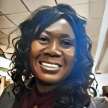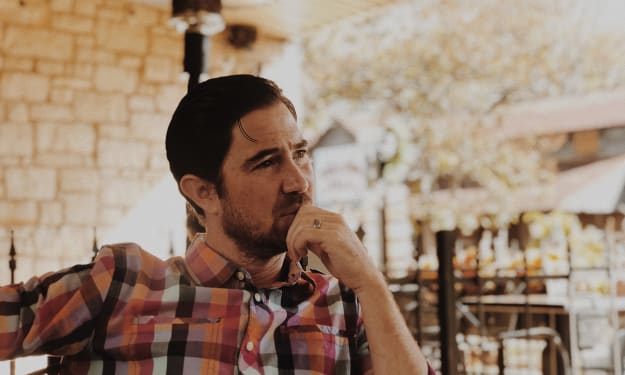
As a young adolescent girl growing up in a religious home, I always wanted to be like the other kids. I wanted to live life as they did because I thought they had it better than me. I envied the relationship they had with their parents and I longed for the same closeness I observed.
My life was deeply molded by what my parents taught me at home. My parents belonged to the Pentecostal Church, and they made sure that I was engrained in the Bible from a very young age. I did not know life outside of the boundaries of the church. Yet, the only time my family attended church was when we visited home on our summer vacations. The rest of the year, my parents taught us from the Bible at home. There were endless restrictions and rules by which to abide. The extent to which this would have an effect on me only became clear when puberty came and I realized how much freedom my peers had.
As a little girl, I never knew why my parents were so strict. Discipline as my parents explained it was God’s love. This meant if they did not discipline their children, then they did not love their children. I was terrified of being disciplined. I always turned red in the face when my parents would read passages about sexual immorality from the Bible. I was determined that I would not displease them.
There was a part of me that longed to be close to my parents. I wanted to be able to share with them the private struggles that I dealt with. I wanted to be able to speak with them openly without fear and without being judged, but the image I had of them contradicted the type of relationship I envisioned having with them; the one that I saw with my peers and their parents.
As the youngest in my family, I was taught to always respect my elders. My understanding of God in my life was that He should be feared as the all-seeing eye that would judge my every step. In the Pentecostal Church, it was also clear to me that men had the upper hand. The women were expected to live a life of servitude, revering the man in all circles. I was under the impression that God loved men more than women, so one day I asked my father about the stark difference I observed:
“Why does God love men more than women?" I asked.
“God doesn’t love men more than women,” he replied, and he left it at that.
It was clear that regardless of what was going on around me, I was going to be a good girl. I watched my school friends and classmates have fun doing the things young people growing up normally do. Going to the movies, to the night clubs, and to week-end parties were rarely things on my to-do list. Most of what I learned about sex, I learned either at school or from different magazines. I learned about the male and female reproductive system in my seventh grade Science class. It was in the eighth grade in my Health Education class that I was awakened to the fact that most kids my age did not seem to believe that there was anything wrong with pre-marital sex. I knew that my friend who came from a liberal home was very open-minded about such things, but I had assumed that in general, most people viewed sex before marriage as a sin. I was under the impression that all parents believed that their children should wait until marriage.
Although I always informed my closest friends if I had a crush on a guy, I rarely ever approached a guy in school to let him know how I felt. I did not know how it was done. I had not figured out the formula for approaching the opposite sex. There were many times where I dreamt of dropping a little note inside a boy’s locker just to give him a clue, but I always ended up talking myself out of it. I was too nervous at the thought. I knew that once I revealed my feelings for a boy, there would be no way to take it back, and everyone would eventually hear of it. I wondered what if they did not return the same feelings? I thought I was different from the other kids because I did not know anybody else at my school who had the same religious beliefs as I. It wasn’t common for students to openly talk about their faith.
One day while sitting on the front steps of my school, a girl in the same grade as me came to sit next to me. She was probably the most popular girl in eighth grade. We somehow struck up a conversation about religion and I found out that she was “born again.” Excited, I told her that I too was "born again." That is how my parents always described our religious beliefs. I didn't quite know the meaning of the word. I had assumed that "born again" meant Pentecostal.
Although I was really happy that I had finally found someone who shared the same faith as me, I was slightly perplexed because she and I were very different. She seemed to come from a liberal family. She was usually one of the first students to step out on the dance floor at school, and unlike me, she hung out with a lot of the boys. School dances were a big deal. This was an opportunity for the children to mingle with their peers at school in a social setting that was a little different from the classroom. I was able to go to a couple of school dances. This was usually when my parents were out of town. When they were home, I would simply tell them that a friend had invited me over to her house for the evening. I would go to my friend’s house, and then we would head to school for the dance.
I was not the most outspoken child in school. I knew who the popular kids were and I did not believe that I was one. I had to be invited to be in their circle. Even then, I struggled with acceptance. It happened to me one day when I was in Mrs. Kerr’s class. There was a new student in our grade who was really popular. He came and sat next to me during art class one day and I completely shut down. I could hardly believe that he chose to sit next to me as opposed to somebody else. I was too timid and I was feeling too insecure. The fact that I had to learn English in middle school to keep up with the rest of the students added to my shyness. I admired the brightest students and the most outspoken ones that were apparently leaders in the school body. I wished I could be as gifted and as talented as them. I was also very self-conscious about my appearance. My ninth grade year was particularly difficult for me. This was when my acne problem had reached an all-time high.
At age fifteen, I lost my father to suicide. It was a traumatic loss that affected my entire life. Losing my father made me question the things I had been taught. How could God let such a tragic event happen to my family? My father was a good person. With my father now gone, I had no desire to continue in the things or the traditions of the Pentecostal Church.
Soon after my father’s funeral, a family friend started taking my brother and I to church. They called it a chapel. This was my first time being a regular church attendee. I quickly grew accustomed to the environment of the new church. Surprisingly, there were several students from school who were attending there. I did not know that they also attended church.
Our family friend who took us to church that morning had given me a book, hoping it would offer me some words of comfort. I looked at the cover of the book. Its title was How To Handle Adversity. I thanked her for the book and let her know I would be reading it.
Meanwhile, a young pastor at the chapel had caught my eye. He was the Associate Pastor and Youth Pastor of the church. His name was Hovig. Hovig seemed to have a caring spirit. All the children at the church naturally gravitated towards him. After hearing him preach on several occasions Sunday morning, I wanted to talk to him about my father. I felt in my heart that he would be able to help me with the grief and despair I was feeling. I penned a letter addressed to him and dropped it off in the church's mailbox.
"Why would God allow such a terrible thing to happen to my father and to my family?" I asked. I couldn't get over the hurt, and I didn't know who else could answer my questions. I didn't know how to see beyond the dark cloud that had overtaken me. About a week later, I received a reply. Hovig responded to my letter and addressed the concerns, the doubts, and the issues I had about having faith in God. He expressed something of a notion that brought the peace that I needed, and a joy I never knew.
When I graduated from school and moved away to college, I joined a little church called IGO. It was a church located off of Windy Hill in Smyrna, Georgia. The church building was beautiful. Whenever I entered the sanctuary of this church, I felt as if I had entered a haven... and with the ceiling as a replica of the heavens, you couldn’t help but feel as though God was near. One of my favorite places to go was upstairs in the balcony. I liked to go to the far back, removed from the sanctuary seats and facing the front of the church where high ceiling windows framed the scenic view from the outside. And I didn't know of custom-built commodes until I spotted the one in the little toddler's wing.
I was disenchanted with the Pentecostal church at the time. Losing my father made me question the things he had taught me. With my father now gone, I had no desire to continue in the traditions of the Pentecostal Church. You see, my parents had taught my siblings and I to read the Bible in Ewe. If I as much as saw my Ewe Bible, it would bring back memories of my father. It would remind me of all the time we had spent as a family studying the Bible together. It would sadden me and I would run in the other direction. To find solace, I would run in another direction to another language that offered more comfort.






Comments
There are no comments for this story
Be the first to respond and start the conversation.